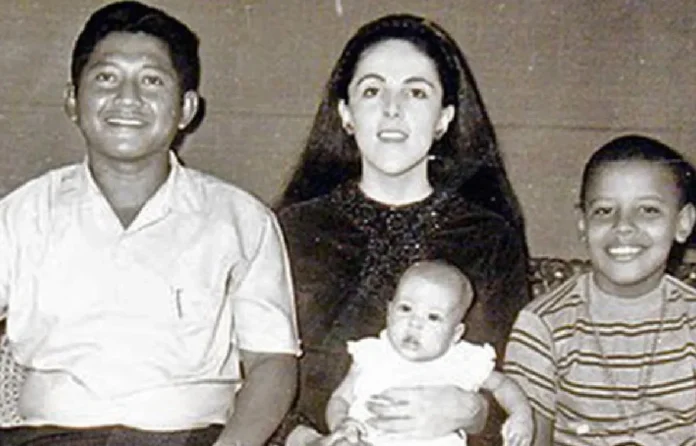Lolo Soetoro, the Indonesian stepfather of former U.S. President Barack Obama, had a complex financial situation. At the time of his death on March 2, 1987, his net worth was estimated to be approximately $150,000 USD. However, there are reports suggesting that his net worth might have been higher during his lifetime, potentially in the millions, though these figures are not well-documented.
Soetoro’s career spanned roles as a geographer and geologist, and he worked in the Indonesian Army Topographic Service and later in the oil industry with companies like PT Unocal (now Chevron). His financial situation improved significantly when he secured a job in government relations at Union Oil Company in 1970.
Despite the modest net worth at his death, Soetoro’s influence on his family, particularly Barack Obama, was significant, contributing to Obama’s cultural understanding and worldview. Soetoro’s legacy extends beyond his financial achievements, as he played a crucial role in shaping the life of a future U.S. President.
The Financial Portrait of Lolo Soetoro: A Modest Yet Impactful Journey
Lolo Soetoro’s financial story is far more than just a number. At the time of his death in 1987, his net worth hovered between $100,000 and $300,000 – a modest sum that belies his significant life journey. From military service to corporate executive, Soetoro’s financial trajectory tells a compelling story of survival, adaptation, and quiet success that transcends mere monetary value.
His life intersected with global politics in unexpected ways, serving as a bridge between Indonesian economic realities and the future political landscape of the United States through his connection to Barack Obama. The financial lessons and worldview Soetoro shared would ultimately shape the perspectives of one of America’s most prominent political figures.
Early Career: The Foundation of Financial Growth
Soetoro’s financial journey began with solid educational credentials that set him apart in mid-20th century Indonesia. His bachelor’s degree in geography from Gadjah Mada University demonstrated early academic excellence, while his master’s degree from the University of Hawaii at Manoa in June 1964 expanded his professional horizons. These academic achievements were more than just pieces of paper – they were strategic investments in his future earning potential.
The intersection of education and opportunity became a hallmark of Soetoro’s career. His geographical expertise positioned him uniquely in a rapidly changing Indonesian economic landscape, providing him with skills that would prove invaluable in both government and corporate sectors.
Military and Government Service: Building Professional Networks
The Indonesian military provided Soetoro with his initial professional platform. Serving as an army geographer in Java and Papua New Guinea, he developed crucial skills and connections that would define his future career. His military service coincided with Indonesia’s tumultuous political transition, a period of extreme economic challenges with inflation reaching a staggering 600%.
This challenging environment required exceptional adaptability. Soetoro was recalled to active duty in July 1965, just before General Suharto’s right-wing coup – a period of intense political and economic transformation that would reshape Indonesia’s entire economic structure.
Corporate Climb: From Surveyor to Oil Executive
Soetoro’s career progression demonstrated remarkable resilience and strategic networking. Starting as a low-paid topographical surveyor for the Indonesian government, he strategically built connections that would prove crucial to his professional advancement. His brother-in-law’s connections in the national oil company became a pivotal factor in his career trajectory.
The turning point came when he secured a position in the government relations office of Union Oil Company. Sources describe him as “the best geologist” in his field, ultimately rising to become an executive at Mobil Oil and serving as its liaison to President Suharto. This position placed him at the intersection of corporate and political power in Indonesia.
Net Worth Breakdown: More Than Just Money
By the late 1970s and early 1980s, Soetoro’s financial standing reflected his professional success. His assets primarily consisted of:
- Real estate property holdings in Jakarta’s most exclusive neighborhoods
- Personal savings accumulated through strategic career moves
- Professional investments from his corporate positions
- Compensation from high-level executive roles
His residential journey mirrored his financial growth – from a modest home on Jakarta’s outskirts with no electricity to a residence in Menteng, the city’s most exclusive neighborhood, where bureaucrats, diplomats, and economic elites resided.
Family and Financial Dynamics
Soetoro’s personal life intersected significantly with his financial journey. His marriage to Ann Dunham (Barack Obama’s mother) and subsequent divorce in 1980 showcased a pragmatic approach to personal finances. Notably, Dunham did not pursue alimony or child support, suggesting an amicable financial separation that preserved his assets.
He remarried to Erna Kustina in 1980, expanding his family with two additional children – Yusuf Aji Soetoro and Rahayu Nurmaida – while maintaining his financial stability.
Comparative Financial Context
While Soetoro’s net worth might seem modest by American standards, his financial standing was considerably different within the Indonesian context. Residing in Menteng, Jakarta’s most exclusive neighborhood, indicated his upper-class status. His position as an oil company executive placed him well above the average Indonesian income.
Interestingly, his financial trajectory stands in stark contrast to his stepson Barack Obama’s later success. By 2007, Obama’s net worth had reached $1.3 million, potentially growing to $10 million by 2012.
Legacy Beyond Wealth: Influencing Barack Obama
Soetoro’s greatest financial impact wasn’t his net worth, but the lessons he imparted. Obama remembered his stepfather teaching him about power dynamics: “Men take advantage of weakness in other men. They’re just like countries in that way.” These insights potentially shaped Obama’s later economic and political perspectives.
Conclusion: A Nuanced Financial Portrait
Lolo Soetoro’s estimated net worth of $150,000 at his death in 1987 tells only part of his story. His life represents a fascinating narrative of personal growth, professional achievement, and quiet resilience in the face of challenging economic circumstances.



